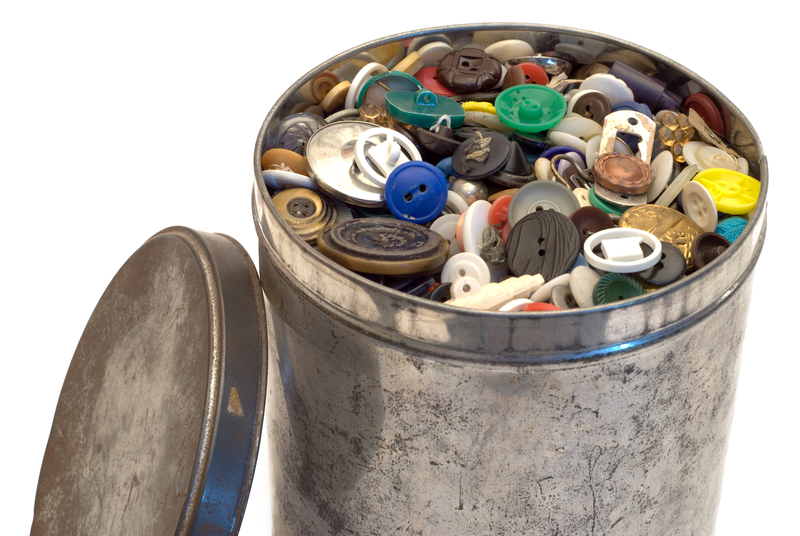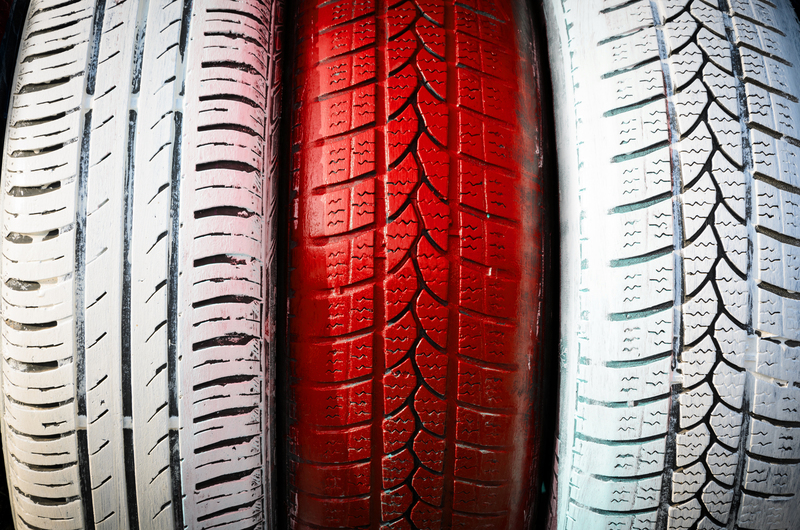Maximize Your Savings When Tackling Bulky Waste Items
Managing large, cumbersome waste items can feel overwhelming and costly. Fortunately, by using strategic methods and taking advantage of available resources, you can substantially reduce costs and maximize your savings. This comprehensive guide empowers you to navigate the disposal of bulky waste efficiently, responsibly, and affordably.

Understanding Bulky Waste Items and Why Smart Disposal Matters
Before you embark on your quest to maximize savings with bulky waste removal, it's important to understand what qualifies as bulky waste items and why prudent disposal is crucial. Bulky waste refers to large items that cannot be accommodated by regular municipal garbage collection services. These might include:
- Old furniture (sofas, wardrobes, mattresses, dining tables)
- Large electrical appliances (refrigerators, washing machines, stoves, AC units)
- Carpets, rugs, and large textiles
- Exercise equipment and musical instruments
- Garden waste and outdoor equipment (sheds, lawnmowers, trampolines)
Improper disposal impacts the environment, can incur substantial fines, and wastes valuable resources. Making informed decisions is the smart--and the expensive--move.
Why the Cost of Bulky Waste Disposal Varies Significantly
The price of managing large waste items differs dramatically depending on several factors:
- Volume and weight of items: Disposal fees typically increase with item size and quantity.
- Material composition: Certain materials (like electronics or white goods) require special treatment, adding cost.
- Location: Rural and remote areas may have limited, more expensive options compared to urban areas.
- Local regulations: Some municipalities offer free or discounted removal days; others charge per collection.
Understanding these dynamics will help you pick the most effective and frugal options.
Key Strategies to Maximize Your Savings on Bulky Waste Disposal
1. Assess and Sort Your Bulky Waste Items
The first step in minimizing bulky waste disposal costs is careful assessment and sorting. Not every large item is destined for the landfill. Take inventory and separate items into the following categories:
- Still usable or repairable
- Recyclable materials (metal, wood, electronics)
- Hazardous waste (appliances with refrigerant, batteries)
- Non-recyclable, non-reusable bulk trash
Smart sorting can open up opportunities for cheaper or even free removal.
2. Explore Free and Low-Cost Removal Options in Your Area
-
Municipal bulk waste collection programs:
- Many cities offer scheduled or annual bulky item pickup.
- Check your local waste management website to register and learn the rules.
-
Bulk waste drop-off centers:
- Transfer stations or recycling centers may allow free or inexpensive item drop-off by residents.
-
Special recycling events:
- Certain recyclables or electronics are accepted for free during community collection days.
Leveraging these resources can dramatically reduce your bulky waste disposal expenses.
3. Donate or Sell Usable Items
One person's junk can truly be another person's treasure. If you want to maximize your savings when handling large waste items, consider donation or resale:
- Donation: Many charities (Goodwill, Salvation Army, local shelters) accept furniture and electronics. Some offer free pickup services.
- Online marketplaces: Post items on Craigslist, Facebook Marketplace, Freecycle, or OfferUp.
- Garage sales: Clear multiple bulky items in one go--and earn extra cash.
The benefit? You dispose of your items at little or no cost, help those in need, and potentially receive a tax deduction or cash payment.
4. Recycle What You Can
Recycling is not only environmentally responsible-- it's often a cheaper way to deal with large unwanted goods. Key points:
- Metals, electronics, and some large plastic goods are recyclable at specialized centers.
- Many municipalities now have e-waste drop-off points for old TVs, computers, and appliances.
- Certain scrap yards may even pay you for metal items (bikes, bed frames, appliances).
Check with local facilities about their requirements to avoid fees and maximize returns.
5. Pool Resources with Neighbors and Friends
Save on costs by collaborating!
- Bulk discounts: Junk removal businesses often offer discounts for higher volumes. By organizing a coordinated collection with neighbors, you can share costs.
- Truck or dumpster rental: Sharing the rental of a truck or roll-off dumpster is often considerably cheaper per household than going solo.
Collaboration is a smart move when tackling bulky junk in apartments, HOAs, or shared neighborhoods.
6. Schedule Your Waste Removal Strategically
Timing matters. Here's why:
- Off-peak pricing: Some companies and municipal services charge less during non-peak periods.
- Seasonal discounts: After major holidays or during house-moving season, providers may run promotions on junk removal.
- Coordinate with municipal cleanup days: Save on fees by scheduling your item removal to coincide with community cleanups.
7. DIY Bulky Waste Disposal: Is It Worth It?
Doing it yourself offers big savings--if you have the equipment and physical ability. Here's how to make it work:
- Borrow or rent a truck or trailer: Haul items yourself to a recycling center or landfill.
- Load efficiently: Dismantle furniture and bulky items to fit more in fewer trips.
- Be safe: Use appropriate lifting techniques, wear gloves, and secure items during transport.
- Research local fees: Some centers charge by weight or per item; always compare before you go.
When the amount is manageable, DIY can significantly reduce your bulky item disposal costs.
8. Avoid Hidden Fees and Fines
Watch out for potential pitfalls that can severely impact your savings:
- Illegal dumping is expensive: Fines for unauthorized dumping are steep and not worth the risk.
- Permit requirements: For certain items or volumes, a disposal permit may be required.
- Restricted materials: Some items (paint, chemicals, certain electronics) require special handling--double check before discarding.
How to Evaluate Professional Bulky Waste Removal Services
In some cases, calling in the pros can be the optimal, time-saving move--but only if you compare wisely to maximize value and keep your expenses low.
What to Look for in a Professional Junk Removal Service
- Transparent pricing: Avoid companies with hidden fees or unclear pricing structures.
- Responsible disposal: The best companies recycle or donate as much as possible, minimizing landfill use.
- Positive reviews: Past customer experiences indicate reliability, punctuality, and honesty.
- Locally-owned options: Small, local companies may offer lower rates and more flexible scheduling.
Money-Saving Tips When Hiring the Pros
- Get multiple quotes: Prices can vary greatly between providers.
- Ask about specials: Some services offer new customer or volume discounts. Don't be shy to inquire!
- Prepare your items: Disassemble and group items prior to pickup to reduce labor charges.
- Only pay for what's necessary: Consider a mix of professional and DIY for the best savings.
Environmental Benefits of Responsible Bulky Waste Disposal
Maximizing your savings is great, but so is protecting the planet. By exploring alternatives to landfill, you:
- Reduce landfill burden and greenhouse gas emissions
- Encourage reuse and recycling within your community
- Conserve valuable raw materials and energy
- Provide affordable resources to those in need
Frequently Asked Questions About Bulky Waste Disposal Savings
Q1: What counts as a bulky waste item?
Bulky waste includes oversized garbage, typically larger than regular trash bin capacity. Common examples: sofas, beds, old TVs, appliances, large toys, carpeting, and garden tools.
Q2: Can I get my bulky items picked up for free?
Sometimes! Many cities offer residents one or more free bulky item collections per year. Check your local waste management provider's website for specific details.
Q3: Is it cheaper to hire a junk removal service or rent a dumpster?
It depends on the amount and types of junk, your location, and how quickly you need it gone. For single-item pickups, hiring a removal service is often cheaper. For major cleanouts or renovations, shared dumpster rental saves money--especially when costs are split among several users.
Q4: Are there any tax deductions for donating bulky items?
Yes! Donated items in good condition to IRS-qualified charities are eligible for tax deductions. Be sure to get a receipt and keep a detailed list of items and their fair-market value.

Summary: Cut Costs Without Cutting Corners
Maximizing your savings when tackling bulky waste items doesn't have to mean sacrificing convenience or ethics. By sorting smartly, exploring free local options, donating, recycling, collaborating with others, scheduling strategically, and comparing both DIY and professional services, you'll dramatically reduce costs and environmental impact.
Turn the headache of bulky waste into a smart, affordable process! Start by assessing what you have, then use the strategies above to ensure you don't overspend or endanger the planet.
Take Action: Your Next Steps for Affordable Bulky Waste Disposal
- Audit your bulky junk--what can be reused or recycled?
- Research your area's free and low-cost collection or drop-off days
- Coordinate with friends or neighbors for savings on pickups or rentals
- Compare estimates if hiring professionals--and always ask about deals!
- Prioritize responsible disposal for a cleaner home and a greener world
With a little planning, you can streamline your clean-up, protect your wallet, and do good for your community. Maximize your savings today!